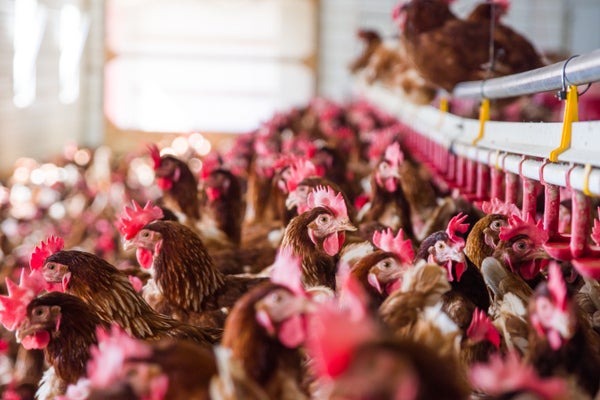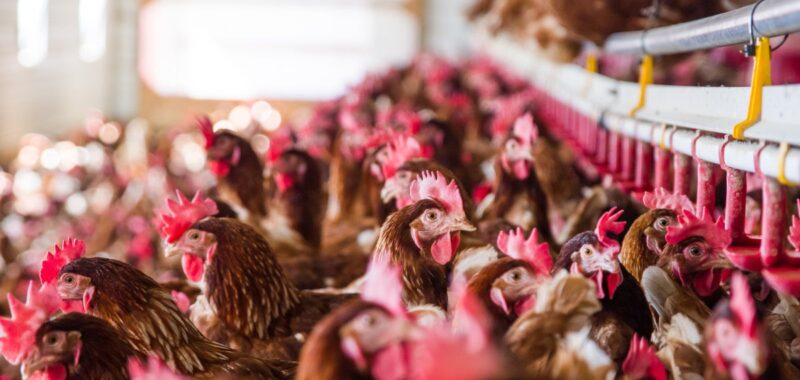December 18, 2024
2 min read
U.S. Has First Case of Severe Bird Flu, CDC Confirms in H5N1 Update
Louisiana reported a person hospitalized with a severe case of H5N1, and the USDA has begun bulk milk testing

A person in Louisiana has been hospitalized with severe H5N1 influenza after having contact with sick backyard birds. The virus is similar to that found in wild birds and some poultry.
The ongoing bird flu outbreak in the U.S. just got a bit more concerning: a person in Louisiana has been hospitalized with the first severe case of infection with the H5N1 avian influenza virus in the U.S., the Centers for Disease Control and Prevention announced in a statement issued on Wednesday. The governor of California also issued a state of emergency for bird flu Wednesday as a precaution.
A total of 61 human cases of H5N1 have been confirmed in the U.S. this year. Most of them have occurred in dairy or poultry farm workers—and most of them have been mild. The recent Louisiana case, initially reported by the Louisiana Department of Health last Friday, is the first known instance in which a person has been hospitalized for an with the H5N1 infection in the U.S. this year. An investigation is under way, but the involved person appears to have had contact with sick or dead birds from a backyard flock. The viral strain is different from the one currently circulating in dairy cows. Preliminary genetic sequencing revealed it is likely related to the D1.1 strain that is now circulating in wild birds and poultry in the U.S. and to a human case in Canada.
In addition to the Louisiana case, Delaware recently reported a probable H5N1 case that was detected by routine state influenza surveillance. The infected person did not have known contact with sick animals. The CDC could not confirm the type of influenza A virus after multiple tests and has classified it as a “probable case.” There have been at least two previous cases with no known exposure.
On supporting science journalism
If you’re enjoying this article, consider supporting our award-winning journalism by subscribing. By purchasing a subscription you are helping to ensure the future of impactful stories about the discoveries and ideas shaping our world today.
“These two cases do not change CDC’s current risk assessment for the general population, which remains low,” said Demetre Daskalakis, director of the CDC’s National Center for Immunization and Respiratory Diseases, in a group call with reporters on Wednesday. Nevertheless, “the large number of animals—birds and mammals—infected with H5 bird flu increases the risk of the virus potentially infecting people and potentially adapting to cause human-to-human spread.”
H5N1 continues to infect dairy cows in at least 16 states, with 860 herds affected as of December 17. On December 6 the U.S. Department of Agriculture launched a new federal order for bulk testing raw milk from dairy cows. The order will be phased in starting with six states: California, Colorado, Michigan, Mississippi, Oregon and Pennsylvania. Other states will be added as resources allow, Eric Deeble, the USDA’s deputy under secretary for marketing and regulatory programs, told reporters on Wednesday. Several field trials for bovine H5N1 vaccines are underway at locations around the country, he added.
Also this week the company Labcorp announced it will now offer a human H5 bird flu test that physicians can order.

